The Quorum of the Twelve Before They Were Called: Boyd K. Packer
Boyd K. Packer is the President of the Quorum of the Twelve Apostles. He is also a man who has had the trial of overcoming polio, received the blessing of a wonderful wife and ten children, and has selflessly offered himself to the Lord’s work (“Boyd K. Packer”). In this biography of Boyd K. Packer, read about his early years of trials, blessings, and spiritual growth.

Humble Beginnings
Overcoming Polio
When Boyd was five years old, he contracted a high fever which the doctor diagnosed as pneumonia and prescribed the treatment for it. After the fever subsided, Boyd could not walk. It wasn’t until several years later that the illness was properly diagnosed as polio rather than pneumonia.
Young Boyd would have to teach himself how to walk again. He remembers crawling across the floor, later pulling himself up onto chairs. He would relearn how to walk, but would have trouble with his knees and hips for the rest of his life. But Boyd K. Packer pulled through and continued on, saying that there is “nothing to be gained by talking to other people about aches and pains. I just moved on through life” (CES Fireside talk “The Instrument of Your Mind and the Foundation of Your Character” ; Boyd K. Packer: A Watchman on the Tower).
Treasures in Heaven
Boyd was the 10th of 11 children. His mother, Emma, was a housewife while his father, Ira, was a struggling mechanic. The family sometimes found it difficult to make ends meet in the midst of the Great Depression. Boyd K. Packer later said:
Sometimes in my growing years I thought we were poor. I later learned that that was not true. We just didn’t have any money. We were always rich in the things most significant in our lives.
Boyd would later have to support ten children on a teacher’s budget while also attending school for advanced degrees. But he knew from his own childhood that he was not poor, but rich in his family, love, and the gospel (Ensign article “Elder Boyd K. Packer: Disciple of the Master Teacher”).
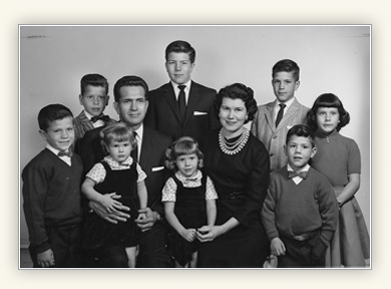
Birds, Art, and an Election
Like President Monson, Boyd loved to raise birds, owning many peacocks, golden pheasants, and pigeons. During the 1938 elections, young Boyd and other members of the Brigham City pigeon club would use homing pigeons to collect the returns from towns in the county that had no telephone service. The returns came in a full day earlier than any other year.
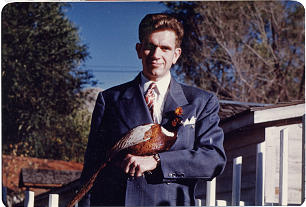
Along with his love of raising birds, Boyd also developed a talent for drawing birds, and later carving them out of wood as well. Boyd remembers how his mother would lay out newsprint on the ground for him and his siblings to draw on. He says that, “drawing was a disease to which they were exposed and of which they had mild cases, but with me it was a serious affliction.” Boyd would continue to develop this talent throughout his life (Boyd K. Packer: A Watchman on the Tower).

Dating and Police Sirens
One day, Boyd and two friends, Malcolm Jeppsen and Verl Petersen, went on a triple date with their girlfriends. Afterwards, they dropped off the girls and were driving to Boyd’s home when they passed a parked police car.
Verl leaned out of the window and made a very convincing police siren sound. In fact, it was so authentic that the police officer followed them home. He approached their car and said, “All right, fellows. Where’s the siren?” Boyd’s response: “We just took her home” (Boyd K. Packer: A Watchman on the Tower).
Military and Spiritual Experiences
The Spirit to Fly
Boyd joined the Air Force during World War II and completed a portion of his training in Santa Ana, California. His first solo flight happened just a few days after a classmate had crashed his plane and died. Out of curiosity, Boyd flew over the crash site.
When preparing to land, Boyd spun his plane to help him lose altitude. But Boyd’s nerves were shaken after seeing the crash site, and when he tried to recover from the spin, he overcorrected and flipped into a secondary spin. His plane shuddered and stalled, and Boyd barely managed to regain control for landing.
He told a classmate about what had happened and learned that earlier in training, an instructor taught about the dangers of a secondary spin and how to get out of it. Boyd was angry at his own instructor for neglecting to teach Boyd this important information and nearly risking his life. Over the next few days Boyd’s anger, tension, and fear affected his flying.
After a bad flight, Boyd’s instructor became frustrated with him. He told Boyd to go to Phoenix that weekend and get drunk. “You go get loosened up and relax, and maybe we can make a pilot of you.”
Boyd did go to Phoenix that weekend, but not to get drunk. “We sought the other kind of spirit in association with brethren in the priesthood with members of the Church in worship service. There came an inspiration and a restoration of confidence. There came an assurance that has sustained me ever since” (Boyd K. Packer: A Watchman on the Tower).
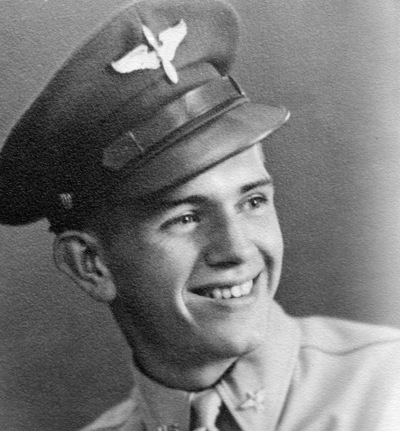
Receiving a Testimony of the Book of Mormon
When Boyd left for the Air Force, he received a pocket-sized Book of Mormon given to servicemen. This copy of the Book of Mormon became well worn throughout Boyd’s basic training and tour of duty as he read and reread it several times.
While on a crowded ship headed for Seattle, Boyd prayed, asking if the Book of Mormon was true. He asked God saying, “I must know for sure that it is, for if it is not true, then I’m not sure that it is important whether or not I come back, because things in the world seem to be all undone anyway.” Boyd continued to pray, but his answer seemed slow in coming.
The Japanese surrendered while Boyd was stationed in Hawaii. But his service with the Air Force did not end when the war did. Boyd traveled to the Philippines and then to Japan, stationed on an Okinawan island. He continued to attend church and grow spiritually, but he still had not received the confirmation he desired. Instead, he faced the horrors of war and a malevolent hurricane.
One evening, he could not sleep. “I thought that I had not testimony to anchor me. I desperately wanted to know. I struggled with doubt and uncertainty. I wanted a testimony.” Boyd left his bed and walked a ways, then he knelt in prayer.
In the middle of the sentence, Boyd received a witness of the truthfulness of the Book of Mormon:
I could not describe to you what happened if I were determined to do so. It is beyond my power of expression, but it is as clear today as it was that night more than 65 years ago. I knew it to be a very private, very individual manifestation. At last I knew for myself. I knew for a certainty, for it had been given to me.
Boyd returned to bed, full of the joy of the spirit and a testimony (General Conference talk “The Witness” ; Boyd K. Packer: A Watchman on the Tower).
Warned of Danger
Once, Boyd and his crew were flying over a typhoon which made it difficult to see the islands below. Despite the storm, the flight had been going well until the navigator said, “Something is wrong. We’re off course.” When they dropped the plane down through the clouds and into the storm, the radios went out.
Boyd and his crew were lost and did not know where to land. They searched and searched, trying to find an island in the dark storm. Finally, Boyd’s co-pilot suggested they turn around, but Boyd felt impressed not to and said, “Hold it just a minute.”
They continued on and after a few minutes discovered an island nearby. Soon, they heard voices over the radio and were able to land safely. As soon as they had gone down the runway, the plane engines sputtered and died, having used up the last of the fuel. At this time, Boyd remembered a line from his patriarchal blessing that said he would be warned of danger. He saw the fulfillment of his blessing that day (Boyd K. Packer: A Watchman on the Tower).
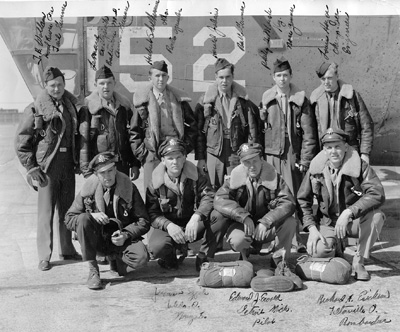
Spreading the Gospel in Japan
Years after his service, Boyd K. Packer found a picture from Christmas day when he was stationed in Japan. The conditions had been miserable because the soldiers could not contact their families and it had snowed for several days. All they had was a stray dog for company. The picture was of Boyd and the dog. He turned it over and wrote:
2nd Lt. Boyd K. Packer, age 21, Chitose Air Base, Hokkaido Island Japan, Dec. 1945. No wife, no degrees, no 10 children, no Apostle, but a missionary nevertheless.
Boyd had not realized the opportunities for missionary service when he first went to Japan. He was scheduled to return home when his commanding officer told him that he was going to be assigned as a operations officer in Osaka instead. Boyd did not want to stay, and he expressed his feelings, including a few scriptures used out of context. The officer listened and said, “Well, that’s all right, Packer; you’re still going.”
Boyd was not happy about this extension to his service. He prayed to the Lord, asking why he had to continue on when he wanted to go home. Little did Boyd realize how the experiences he would have in his extension would affect his life and others.
In his new assignment, Boyd met Tatsui Sato and his wife Chio. Other LDS servicemen, Ray Hanks and C. Elliot Richards, had been teaching the couple the gospel. Boyd joined their efforts and grew close to the Satos. Boyd helped to baptize them and Tatsui would later do much translation work for the Church, blessing the lives of the Japanese saints (Boyd K. Packer: A Watchman on the Tower ; Ensign article “Elder Boyd K. Packer: Disciple of the Master Teacher”).
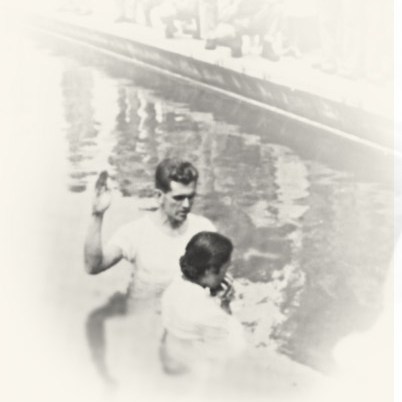
A Promise to God
While stationed in Japan, many of Boyd’s fellow servicemen did not keep the commandments. Boyd kept himself free from the degrading influences around him by spending time with other LDS servicemen or thinking of the words to the hymns.
It was at this time that Boyd made a promise to God:
I’m not neutral, and you can do with me what you want. If you need my vote, it’s there. I don’t care what you do with me and you don’t have to take anything from me because I give it to you—everything, all I own, all I am.
Boyd would prove himself as an instrument in the hands of the Lord by magnifying his callings and sharing the gospel throughout his life (Boyd K. Packer: A Watchman on the Tower).
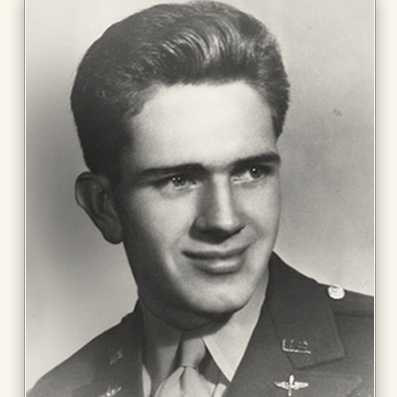
Courtship and Marriage
First Seeing Donna
After his military service, Boyd attended Weber College (now Weber State University) and started dating again. He went to the Peach Days Ball with a girl he had gone out with before. At the ball, Brigham City’s new Peach Queen was announced and crowned: Donna Edith Smith.
Boyd recognized Donna from his teen years. When he had walked to high school, she had walked to junior high in the opposite direction on the other side of the street. He remembered how pretty he had thought she was (Boyd K. Packer: A Watchman on the Tower).
First Seeing Boyd
Donna remembers first seeing Boyd when he gave a talk at a Sunday sacrament evening service. During his talk, Boyd felt prompted to speak on obedience. He did so and emphasized the importance of accepting callings.
Donna remembers thinking, “Now, this is the type of man I would wish to marry.” Later that evening, the bishop extended a calling to Donna, and of course, she accepted it (Boyd K. Packer: A Watchman on the Tower).
First Meeting
The next day, Boyd and Donna finally met each other in the Weber College library where she worked. The first words Donna said to him were, “You have caused me a very serious problem.”
Boyd asked how he had managed that, and Donna told him that she had been called to teach Junior Sunday School, and could not refuse after the talk he had given. But now she had to return home every weekend. Boyd was pleased to hear this and began arranging her rides back to Brigham City (Boyd K. Packer: A Watchman on the Tower).
Courtship
Boyd and Donna started dating soon after that, and Boyd knew from early on that she was the girl he wanted to marry. After an Easter Prom, Boyd gave Donna a diamond ring, which he would later replace with a larger one. Donna says that, “Boyd did not actually ask me to marry him, but he did indicate that I was the one he wanted for eternity” (Boyd K. Packer: A Watchman on the Tower).
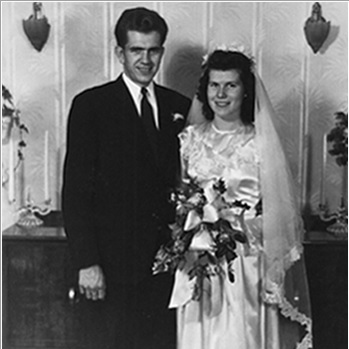
Lessons Learned, Lessons Taught
Staying with the Church
Boyd remembers one Sunday morning as a youth when he went to priesthood meeting. He was wearing a hand-me-down suit previously owned by two of his older brothers. Though the suit was a little big on him, Boyd felt well-dressed.
He met with youth from another ward while waiting for the meeting to start. One young man—who had been in several of the young men’s presidencies and was a church leader’s son—said, “Say, that’s a fine suit you have on, Packer, but didn’t they have one that would fit you?”
Boyd was humiliated and left the meeting. He hid out in his pigeon coop, vowing never to go to church again. Boyd K. Packer later said, “I can see myself having left the Church over that incident.” But he did not. He cannot recall the exact reasons for his return, but he does remember the influence that his parents and seminary teachers had on his life, and feeling unwilling to disappoint them (Boyd K. Packer: A Watchman on the Tower).
Work Ethic
After graduating from high school, Boyd got a job as a time-keeper for a plumbing and heating contractor. He would run through construction areas several times a day to check with the plumbers, receiving the nickname of Sea Biscuit after the famous racehorse.
One day, Percy S. Lord, the senior boss and a co-owner of the company, visited Brigham City. Boyd had come early to work and stayed late as well. Mr. Lord asked him why he was still there, and Boyd told him that there was work he wanted to finish before returning home. Mr. Lord asked how much he was being paid, and Boyd told him.
The next day, Boyd received the pleasant surprise of having a raise that nearly doubled his salary. “I learned that the extra effort one puts into his responsibilities is an excellent investment” (Boyd K. Packer: A Watchman on the Tower).
Accepting Help
While preparing for his marriage to Donna, Boyd found an old home that was within his income, and he thought he could fix it up pretty well. Then Donna’s father, who had recently built several houses, surprised the couple when he offered them one of the new homes as a wedding gift.
Boyd did not know what to do. He did not want to accept the home, because he wanted to prove that he was capable and responsible. He went to his father for advice. Ira listened, then asked Boyd if, in the future, Boyd offered a home to one of his own children, “Do you think that would be in order?”
Boyd said that he thought it would. His father then asked why he thought it was “out of order” for Brother Smith to do this for Donna. Boyd humbled and accepted the new home, knowing that he was giving someone else the opportunity to serve (Boyd K. Packer: A Watchman on the Tower).
“A Heart Sympathetic to Waifs”
When Boyd was an assistant to the Quorum of the Twelve, he attended a sacrament meeting in Cuzco, Peru. During the meeting, a dirty little boy came into the chapel. The boy was very ragged looking, probably an orphan, and he hungrily eyed the bread on the sacrament table.
President Kimball later spoke of the boy saying, “Almost unobserved, he slyly came to the sacrament table and, with a seeming spiritual hunger, leaned against the table and lovingly rubbed his unwashed face against the cool, smooth white linen.” A woman on the front row shooed the boy away, but he snuck back into the chapel a few minutes later.
Boyd caught the little boy’s eye and motioned him to come, opening his arms. Soon, the little boy was sitting in his lap, “the tousled head against the great warm heart—a heart sympathetic to waifs, and especially to little Lamanite ones” (Church News article “Pres. Packer: individual of varied interests, talents, traits” ; General Conference talk “Children”).
After He Was Called
Boyd K. Packer received his Associates Degree at Weber College, his Bachelors and Masters at Utah State University, and his Doctorate in Education at Brigham Young University. In Brigham City, he became the Coordinator of Indian Affairs, taught at the first American Indian seminary, and held office as a city councilman (“Boyd K. Packer”).
Boyd K. Packer became assistant administrator of seminaries and institutes in the Church Educational System, Assistant to the Quorum of the Twelve, and mission president for New England. On April 9, 1970, Boyd K. Packer was called to be an apostle. On June 5, 1994, he was called as Acting President of the Quorum of the Twelve Apostles and on February 3, 2008 he was called as President of the Quorum of the Twelve Apostles (“President Boyd K. Packer”).
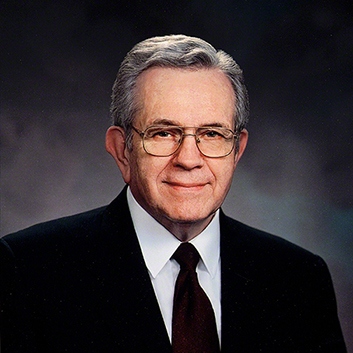
Boyd K. Packer teaches us that the apostles and prophets are simply “ordinary people.” In his LDS.org biography, “Boyd K. Packer,” he says:
There are many qualifications that I lack. There is so much in my effort to serve that is wanting. There is only one single thing, one qualification that can explain it. Like Peter and all of those that have since been ordained, I have that witness.
I know that God is our Father. He introduced His Son, Jesus Christ, to Joseph Smith. I declare to you that I know that Jesus is the Christ. I know that He lives. . . . He made His Atonement. Of Him I bear witness.
Boyd K. Packer was raised from humble beginnings and the debilitating circumstances of having polio. But he continued on, growing in humility, love, and quiet, spiritual strength.
To learn more about Boyd K. Packer, visit his Facebook Page or check out the links below.
- Boyd K. Packer’s biography Boyd K. Packer: A Watchman on the Tower
- LDS.org article “Boyd K. Packer”
- LDS.org article “President Boyd K. Packer”
- Ensign article “Elder Boyd K. Packer: Disciple of the Master Teacher”
- Church News article “Pres. Packer: individual of varied interests, talents, traits”


